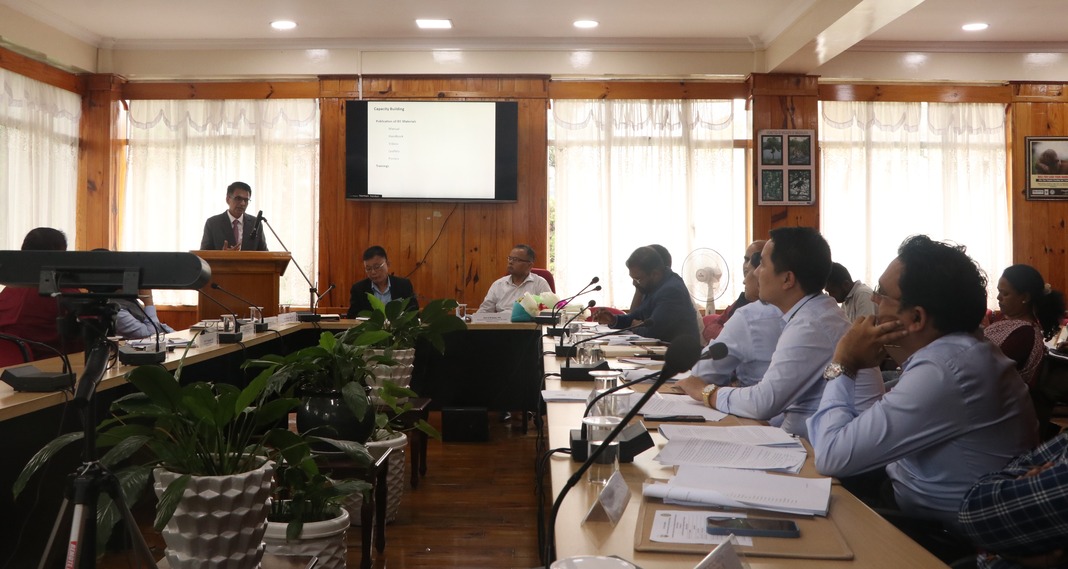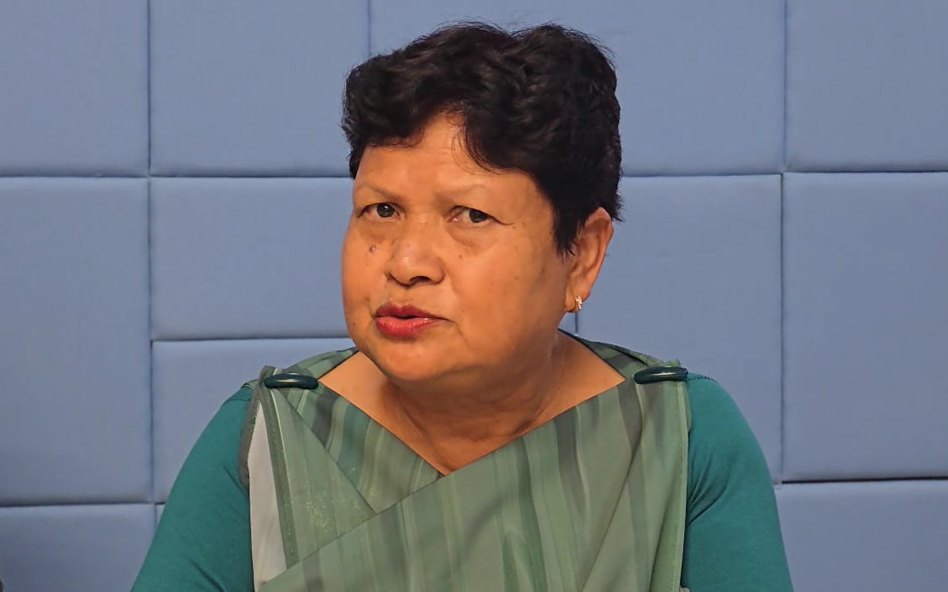Guwahati, Sept 27: Meghalaya Forest and Environment Department is collaborating with the National Bureau of Plant Genetic Resources (NBPGR) to collect and preserve seeds from wild plant species across the state as part of its afforestation drive.
The initiative is crucial for long-term conservation, acting as a safeguard against the potential extinction of native tree species.
The project “Establishment of a Supply Chain to Ensure Assured Supply of Seeds and Other Plant Propagules of Superior Genetic Makeup” will focus on gathering seeds from as many seed-bearing wild plants as possible, ensuring a broad genetic diversity. These seeds will be preserved at the NBPGR’s long-term storage facilities, which maintain optimal conditions at minus 20°C and 5% relative humidity, ensuring their viability for decades.
Half of these seeds will remain in Meghalaya’s storage for immediate use, while the rest will be deposited with the NBPGR. In the event of ecological disasters, deforestation, or other environmental threats leading to the decline of native plant populations, the stored seeds can be accessed to restock forests and reintroduce these species into their natural habitat.
This collaboration provides an “insurance policy” against biodiversity loss, preserving the genetic resources of Meghalaya’s indigenous flora for future generations. It not only supports the state’s afforestation efforts but also aligns with global conservation strategies aimed at safeguarding plant species amid climate change and habitat destruction.
The project aims to develop an end to end supply chain for assured availability of seeds and other plant propagules of superior genetic makeup. In the first phase the project aims to cover 50 commercially important tree species. Project aims to establish 500 hectares in –situ and 60 hectare ex-situ sources of seeds and other plant propagules of superior genetic makeup of 50 prioritised tree species. A medium term seed storage unit having a capacity to store 10 to 15 tonne seeds of prioritised species for about 10 years will be established at Upper Shillong. The project also aims to identify, document and take measures for long term preservation of old growth/heritage trees available in different parts of the State.
The Forest and Environment Department organised an inception workshop of two important projects titled “Development of Schedule of Rates for Afforestation Works in Meghalaya” and on Wednesday at Sylvan House, Lower Lachumiere. Both projects were conceptualised and steered by H.C. Chaudhary, Principal Chief Conservator of Forests, Working Plan, Research & Training and District Council Affairs, aims to build capacity of the Department to afforest and restock barren and degraded forest areas in an efficient and cost-effective manner with assured success.
The first project aims to develop site-specific models for afforestation and restoration of different areas in the State. Cost effective scientific models for successful reclamation of abandoned mines and such other refractory sites available in the State will also be developed under the project. Apart from assessing the quantity and cost of manpower and different materials and services required for various nursery and plantation activities, the project aims to standardise and document various nursery and plantation operations through a detailed method study. The project also aims to institutionalise use of modern tools, equipment, plants and machineries for execution of various afforestation activities.
Apart from senior officers in the Forest and Environment, Agriculture, Horticulture, Soil and Water Conservation Departments in Meghalaya, senior forest officers from Nagaland, Manipur and Mizoram attended the Workshop. Scientists from the Rain Forest Research Institute, Jorhat; Assam Agriculture University; North Eastern Hill University and NBPGR were also present in the workshop.
Deliberations were held during the Workshop to finalise micro-details of activities to be undertaken under these projects. Several areas of collaboration with different Departments, Agencies and Organizations in implementation of these projects were also identified. List of species to be covered for development supply chain were also finalised during the Workshop.

Meghalaya launches initiative to safeguard native flora from extinction
Topics
Popular Categories



